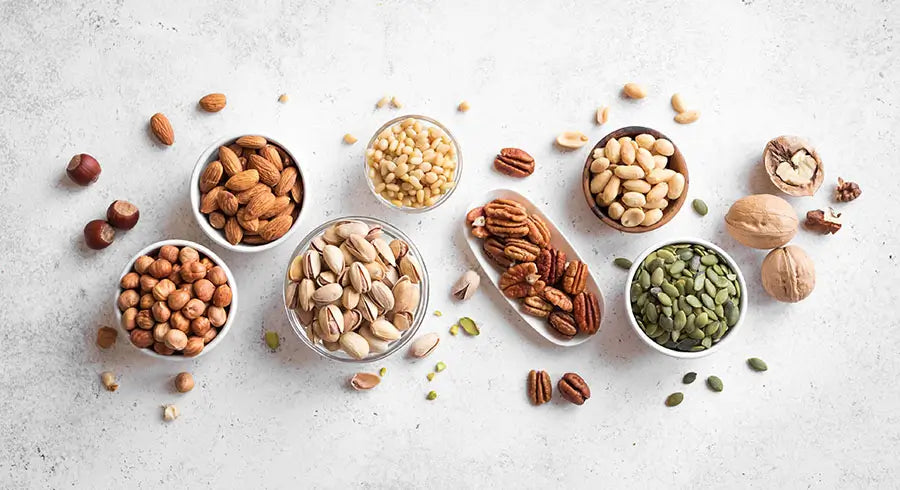
by Mia Rigden, board-certified nutritionist, classically trained chef
The liver isn’t the sexiest organ discuss. We’d much rather muse on our skin, muscle, or gut health, but tens of thousands of searches a month indicate nutrition for liver health is an important topic.
The liver plays a massive role in your nutrition and overall health. It processes nutrients into usable forms, regulates blood sugar, removes toxins, stores iron, and turns a toxic substance (ammonia) into urea to excrete in urine. Your liver is essentially the sewage treatment plant of your body, and in a world where chemicals are abundant and blood sugar levels continue to reach new highs, your liver is doing a lot of work.
Here are my favorite ways you can support support liver health with food.
Eat a diet rich in protein, fiber, healthy fats, and antioxidant-rich plants
Unsurprisingly what you eat plays a huge role in helping your liver to function properly. As a dynamic organ, it relies on essential nutrients from the body, including:
- Protein: Consuming adequate protein helps repair the liver, and create and maintain healthy cells. A protein deficiency can be tied to liver disease, but we also want to make sure we’re eating quality lean proteins like poultry, seafood, legumes, and lean cuts of red meat.
- Fiber: Fiber intake is associated with a reduced risk of liver fibrosis, cancer, and nonalcoholic fatty liver disease. It also helps with digestion, reduces inflammation, and can help maintain stable and healthy blood sugar levels. Try to eat a variety of fiber rich plants, like nuts, seeds, fruits, vegetables, and legumes.
- Monounsaturated and polyunsaturated fats: Healthy fats can help reduce liver fat and support healthy liver enzymes. Omega-3 fatty acids, found in fatty fish like salmon and mackerel, nuts, seeds, and eggs, can reduce inflammation and improve liver function.
- Antioxidant-rich plants: The liver is the body’s main detoxifier, which makes the consumption of antioxidant-rich plants especially helpful to their function. Oxidative stress (which antioxidants work to counter) can impair liver function. Try to eat a variety of plants each week to get a variety of antioxidants like vitamins E, C, and K. This includes everything from vegetables like leafy greens, broccoli, zucchini, and sweet potatoes, to fruit like berries, mangoes, apples, and pears. Garlic is also excellent for liver health and is a good source of selenium, which is important for liver health.
Stay well hydrated
By drinking adequate water (at least 8–10 glasses per day), you are giving your liver an enormous gift. Dehydration impedes liver function, and proper hydration can help the liver to filter toxins from the blood more efficiently, break down fats and fiber to improve digestion, maintain a healthy body weight, and help prevent excess fat from building up in the liver.
Avoid processed foods and excess sugar, and limit alcohol
In addition to adding liver-supporting foods into your diet, you want to make sure you avoid foods that are harmful to the liver or make it more difficult to do its job. Processed foods are generally high in sugar, sodium, additives, and chemicals, which the liver has to work overtime to process thereby increasing risk of liver disease.
These foods also lack in fiber, vitamins, minerals, and other nutrients that support liver function.
And every time the liver has to filter alcohol, some liver cells die. While these cells can regenerate, chronic alcohol consumption can cause permanent damage.
Supplements for liver health:
Supplements that combat oxidative stress and support the body’s natural detoxification processes are great for your liver. Here are few recommendations:
- Glutathione binds to and neutralizes harmful substances to help the liver remove them from your body. The body’s master antioxidant, glutathione also supports liver cells by protecting them from oxidative damage.
- Alpha Lipoic Acid helps maintain healthy liver cells.
- Vitamin C is a powerful antioxidant that fights oxidative stress and helps recycle other antioxidants.
- Phosphatidylcholine, a major constituent of the Lypo-Spheric® goo, helps to process fats and minimize buildup while supporting the liver’s structure and protecting from damage.
Our body works as a unit, not independent parts, so these tips will not only help your liver function but also support your overall health and vitality.
Mia Rigden is a Los Angeles-based board certified nutritionist, trained chef, and the author of The Well Journal (2020) and Foodwise (2023), a comprehensive, encouraging guide to healthy eating with 100 original, nutritionally-balanced and flavor-enriching recipes. Learn more about working with Mia on her website, check out an online course, and follow on Instagram @mia_rigden for science-backed, practical nutrition advice.

